There are 4-5 million sweat glands on the human body. Over 250,000 of those sweat glands reside on your feet. It’s no surprise that sweat and stink find their way between your toes and in your tennis shoes, making “how to stop sweaty feet” a common question on many people’s minds.
The smell, slipping, sliding, blisters, and infection are just a few of the side effects of sweaty feet. For those who suffer from plantar hyperhidrosis (excessive sweating of the feet), wondering how to stop feet from sweating can become a daily challenge.
If you’re tired of soggy socks and foot odor, follow these tips to help prevent sweaty and stinky feet.
Related Article: How to Stop Sweating So Much? 9 Tips to Beat Unwanted Sweat
17 Tips to Stop Sweaty Feet

1. Wash Your Feet Daily
Wash your feet daily with an antibacterial soap. Dirty, sweaty feet attract bacteria which can lead to foot odor.
2. Antiperspirant Foot Lotions & Creams
With all those sweat glands hanging out on your feet, sweat can come fast and furious. A strong antiperspirant for feet is one of the best answers to how to stop sweaty…and stinky feet.
3. Use a Foot Deodorant Spray
Stinky feet go hand in hand with sweaty feet. Once you get foot sweat under control with a foot antiperspirant, de-stink your feet with a foot deodorant spray. The best foot deodorants can be directly applied to smelly feet and stinky shoes. If you’re thinking about how to stop feet from sweating, a strong deodorant spray for the feet is one of the best answers.
4. Use Foot Powder to Keep Feet Dry & Fungus Free
After cleaning your feet, apply an antifungal foot powder. This will help reduce wetness from sweat and control foot odor.
5. Use an Alcohol Wipe to Reduce Sweating
Wipe down your feet with an alcohol wipe to close up your pores and reduce sweating temporarily. Do this before you put on your socks and shoes for the day.
6. Use Cornstarch to Absorb Sweat and Keep Feet Dry
Like foot powders, cornstarch can absorb sweat and keep your feet dry and comfortable. Sprinkle clean, dry feet with cornstarch and let sit for a few minutes before putting on shoes and socks.
7. Put Baking Soda in Your Shoes
After you remove your shoes, put some baking soda in them to soak up excess moisture. This prevents nasty smelling bacteria from festering.
8. Choose the Right Shoes
Wear breathable shoes if possible. Shoes with poor ventilation won’t do your sweaty feet any favors. Avoid plastic and leather shoes. And always wear socks (but never with sandals. PLEASE!)
9. Keep Shoes Dry to Prevent Bacteria Buildup
When considering how to stop sweaty feet, one should remember that dry shoes are less likely to become stinky shoes. Alternate shoes to give each pair time to dry out.
10. Wear the Right Socks
If you’re wearing closed-toe shoes, you need to wear socks—clean, dry, socks. Change your socks daily and avoid wearing cotton socks.

The best socks for sweaty feet are going to be breathable, moisture-wicking socks. Wool, bamboo, and antibacterial materials are all good options for preventing sweaty feet.
The best socks for sweaty feet are going to be breathable, moisture-wicking socks. Wool, bamboo, and antibacterial materials are all good options for preventing sweaty feet.
11. Diet and Exercise
Eating a healthy diet and avoiding spicy, processed, fatty foods can help reduce sweating. More water and less caffeine and alcohol can also help.
Foot sweating is largely influenced by emotional stress. So, keeping stress to a minimum is in your best interest. Regular exercise and relaxation techniques can help manage stress before it turns into pools of sweat in your shoes.
12. Soak Your Feet in Apple Cider Vinegar
If you're struggling with figuring out how to stop feet from sweating, apple cider vinegar can be an effective solution. Apple cider vinegar is a natural astringent (it tightens skin and closes pores) which can help reduce sweat—just like an antiperspirant. But it also keeps foot odor away with its antifungal and antibacterial properties.
Use a cotton ball to apply the vinegar to problem areas of your feet, or you can do an apple cider vinegar soak. Mix 1 part apple cider vinegar, 1 part water, and 1/2 part baking soda in a large bowl or basin. Then soak your feet for 15-20 minutes. This also works for sweaty hands.
13. Soak Your Feet in Tea (Black or Sage)
Like apple cider vinegar, black and sage tea are natural astringents. Many people claim that sage tea is one of the best remedies for sweaty feet and sweaty hands.
Just add 4-5 tea bags to a quart of boiling water. Once cooled, soak your feet for 15-20 minutes. Some report that drinking the tea can also be an effective solution on how to stop sweaty feet.
Related Article: How To Stop Sweaty Hands: 12 Tips, Remedies, and Treatments
14. Exfoliate Your Feet
This is more of a stinky feet remedy. Exfoliation is the process of removing dead skin cells from your body. Odor-causing bacteria love to feed on these dead skin cells. Use an exfoliating brush or glove on your feet 2-3 times a week to help keep bacteria away.
15. Lemon Juice
Use a cotton ball to apply fresh lemon juice to the soles of your feet before putting on your socks and shoes. It helps to close your pores and prevent sweating. Lemon juice can also work as a natural deodorant!
16. Iontophoresis Treatment
If antiperspirant doesn’t stop foot perspiration, iontophoresis might be a good option. It’s been used for over 50 years to treat excessive sweating of the hands and feet. Iontophoresis works by using electrical currents to drive medication into the skin surface. It’s similar to an injection, but without the needles. Iontophoresis machines can be purchased and used at home, the cost ranging from $300-$1000.
17. Botox Injections (Botulinum Toxin)
Botox injections temporarily block the chemicals that activate the nerves that cause sweating. Affected areas of your feet will receive enough injections to ensure that all the nerves have been treated. The desired effects should last anywhere between 3 and 4 months. After that, treatments must be repeated. Botox injections for plantar hyperhidrosis (excessive foot sweating) can be painful.
What Causes Sweaty Feet?
Home remedies for sweaty feet can be effective in managing excessive foot sweating. If you're wondering how to cure sweaty feet, consider trying various techniques to address this common issue. Implementing measures on how to stop feet from sweating is crucial, especially if you're concerned about sweaty feet in shoes.
There are several approaches on how to stop feet sweating that you can explore. Some people find a particular remedy for sweaty feet to be more helpful than others.
But, it's important to understand the sweaty feet causes before determining the appropriate sweaty feet remedy or treatment.
So, if you're questioning why your feet sweat so much, it could be due to various factors.
Your genes, for example, could be the main reason you sweat more than normal (thanks a lot mom and dad).
Your shoes, socks, diet, and emotional stress levels can also dictate how much your feet sweat.
One thing to note is that sweat glands on the soles of your feet respond mostly to your emotions. People who are prone to anxiety, get nervous easily, or have a lot of emotional stress are more likely to have sweaty feet.
For some people, foot sweat flows in niagara-like proportions. For others, sweating is unpredictable and happens regardless of physical activity or temperature. This type of extreme sweating is called plantar hyperhidrosis (or excessive foot sweating).
According to the Mayo Clinic, “hyperhidrosis is abnormally excessive sweating that’s not necessarily related to heat or exercise.”
The most common types of hyperhidrosis are:
-
Craniofacial Hyperhidrosis (head and face sweating)
-
Axillary Hyperhidrosis (sweaty armpits)
-
Palmar Hyperhidrosis (sweaty palms and hands)
-
Plantar Hyperhidrosis (sweaty feet)
Related Article: Why Do My Armpits Sweat So Much? 8 Common Causes for Underarm Sweat
Think you might have plantar hyperhidrosis? Consult with your doctor about possible causes and best treatment options. Hyperhidrosis could be a side effect of certain medications or a symptom of more serious health conditions (i.e. diabetes, cancer, or heart failure).
Understanding the causes can be a pivotal step in learning how to stop sweaty feet.
Related Article: Is There a Hyperhidrosis Cure? 11 Hyperhidrosis Treatment Options
How to Prevent Sweaty Feet in Flats and Heels
If you have overly sweaty feet, you probably avoid wearing flats because they aren’t worn with socks—which help keep moisture at bay. One solution for how to stop sweaty feet is understanding your footwear. And of course, when it comes to heels, your options are pretty much limited to strappy dress sandals or nothing. Don’t worry! You don’t have to avoid those cute ballet flats or edgy stilettos anymore.

Try soaking your feet in a 1:1 mixture of white vinegar and hot water three times per week to keep the smell away. Then, apply rubbing alcohol to the bottom of your feet before putting on your flats to help close the pores and prevent sweating. You can also use SweatBlock antiperspirant towelettes instead of rubbing alcohol.
Common Problems Caused by Sweaty Feet
Did you know sweaty feet can actually cause other problems? Basically, when your feet sweat a lot, they end up sitting in excess moisture all day long.
It’s the perfect environment for infection to breed—and some of them are pretty darn serious! And, if you have excessively sweaty feet, you’re probably more prone to getting warts and blisters too.
Can Sweaty Feet Cause Athlete’s Foot?
Sweat doesn’t cause an athlete's foot, but sweaty feet could lead to it if you aren’t careful. Athlete’s foot is actually a fungal infection. It’s caused when the bacteria on your feet mingles with moisture for too long.
You’re more likely to get athlete’s foot if you wear wet shoes and socks for long periods of time. By taking steps to prevent your feet from sweating too much, you lower the risk of getting an athlete's foot immensely.
Keep in mind that an athlete's foot is really easy to catch if you come in contact with the fungus directly—and if you have naturally sweaty feet, the infection is more likely to grow and spread.
So instead of going barefoot outside, at the gym, in public showers, and at swimming pools, wear flip-flops to protect your feet!
Can Sweaty Feet Cause Itching?
When most people think of itching skin, they think of dry skin. But moisture can make your skin itch, too. So, yes, excess sweat can cause your feet to itch. However, once you’ve washed and dried your feet, the itching should stop. One effective remedy is understanding how to stop sweaty feet. The only exception to this rule would be if the added moisture causes the skin on your feet to dry out.
Keep in mind that excess sweat isn’t the only thing that can cause your feet to itch. Athlete’s foot, allergic reactions, and scabies are also common causes. So, if your feet itch a lot or itch consistently regardless of what you do, you should have a doctor examine you.
Can Sweaty Feet Cause Trench Foot?
Trench foot is a serious condition that’s caused by prolonged exposure to cold and wetness. Because it depends more on the water exposure than the cold, it’s possible for people to get a trench foot in the desert too. This condition can cause nerve damage and low blood circulation, which could result in amputation if not treated.
However, you have to remember that its prolonged exposure to moisture that causes it. That means it takes a while to develop. Basically, you won’t get trench foot from wearing sweaty tennis shoes for one day. You can avoid this condition by removing wet shoes and socks as soon as possible and cleansing and drying your feet.
Stop Sweaty + Stinky Feet Today!
Sometimes washing your feet, changing your socks, or swapping out your shoes doesn’t solve your sweaty foot problem. Try our Quick-Drying, Antiperspirant Cream for Feet and level up your sweat defense today.
![Antiperspirant for Feet [Quick-Dry]](https://cdn.shopify.com/s/files/1/1713/2431/files/Antiperspirant_for_Feet_QuickDry_480x480.png?v=1756957820)
FAQs
Several factors contribute to sweaty feet, including genetics, stress, physical activity, warm environments, and underlying medical conditions. Many people with sweaty feet have a condition called primary focal hyperhidrosis, where the sweat glands in the feet are overactive due to extra nerve signals, not just heat or activity. Some children or adults may notice this starting early—often finding that their feet, and sometimes other areas like underarms or hands, sweat excessively even when sitting still. If you’re concerned it could be a medical issue, a physical exam by a doctor can help rule out other causes.
Primary focal hyperhidrosis is a medical condition causing excessive, uncontrollable sweating in certain “focal” areas like the feet, hands, underarms, or face. It’s not caused by another medical issue, but rather the sweat glands in the treated area receive too many nerve signals, making them “sweat excessively.” It often starts in childhood or adolescence and is symmetrical, typically affecting both sides equally.
Yes, botulinum toxin injections—commonly known as Botox—can reduce sweating by temporarily blocking the nerve signals that activate sweat glands in your feet. The shots are placed just under the skin in areas where you sweat most, and results usually last 3–6 months before needing another treatment. However, the process can be uncomfortable, especially in the soles, and may not be as effective as for underarms. Discuss this option with a specialist if you have severe, persistent symptoms unresponsive to topical treatments.
Moisture-wicking socks and shoe liners “wick moisture” away from your skin, reducing the time your feet spend sitting in sweat. This helps prevent odor, blisters, and infections like athlete’s foot. Wool and bamboo are good examples. Never wear cotton socks if you sweat excessively—they tend to trap moisture.
Absolutely. Many people, including children, first notice sweaty feet as a kid. If your child sweats excessively, especially in social situations or at rest, it could be primary focal hyperhidrosis. If sweaty feet interfere with daily life or your child’s confidence, talk to a healthcare provider for a proper physical exam and potential treatments.
Change socks at least once daily (more if you sweat heavily). Wearing dirty or damp socks allows sweat to trap moisture against your skin, encouraging odor and infection. Fresh, dry socks are essential for sweat control.
The International Hyperhidrosis Society is a nonprofit organization dedicated to supporting individuals with excessive sweating (hyperhidrosis). They provide education, resources, advocacy, and connect you to the latest research and healthcare professionals experienced in sweat disorders around the globe. For more info, visit their website or look for support groups.
While primary focal hyperhidrosis is a common cause, excessive foot sweating can also be a symptom of another medical condition—these include thyroid disorders, infections, or hormonal issues. A healthcare provider can help determine if your sweating is part of a broader health concern through a physical exam and review of your symptoms.
Other commonly affected spots include your underarms, hands, face, groin, and sometimes other areas. It’s not unusual for people with sweaty feet to notice sweating in multiple locations, and this can have a significant impact in both practical and social situations.


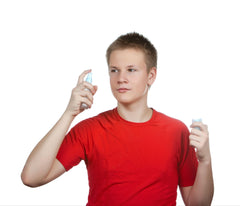

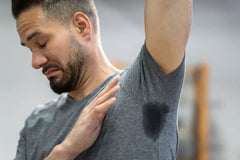




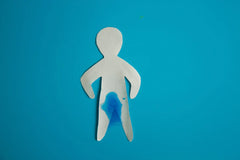
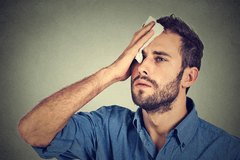
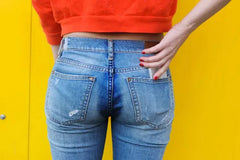
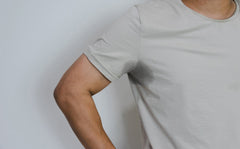

How to Stop Sweaty Feet: Tips, Tricks, and Remedies